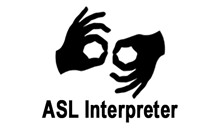
In an essay about technology written a million years ago (or 2012), Alan Jacobs whines and complains that the average human doesn’t know how to pay attention. He is a professor of literature and esteemed writer of books and rather above-average at paying attention.
Has this season of pandemic introduced us to a phase of life in which our ability to pay attention has been heightened, or dulled? I could go either way. On the one hand, it may be supposed that more time at home and fewer ink-dots on the calendar equals more time for things like reading and thinking and listening to online improvements, for instance, talks recorded by your pastors (or those by other people’s pastors). At the same time, it may be supposed that pre-March routines have been replaced by soul-draining uncertainty and cacophony (thinking of moms and dads with kids in school) to such a degree that calm thoughtfulness is more rare than it ever was pre-pandemic.
Many months ago, I encouraged you to begin making a list of things the pandemic is teaching you about yourself and your household. I hope that you are maintaining this list. My list is up to twenty items or so; more are percolating in my mind. I confess that some items on the list are more personal and some are more cultural. However, you may be interested to know that the great majority of my conversations in our church family are not conversations about what the pandemic is teaching you about yourself and your household. Instead, they are about what the pandemic is teaching you about American culture, our political setting, social media, the medical community, and sociology in general.
My assignment was really an assignment about listening to self. What I am witnessing is that, pandemic or no pandemic, it is extraordinarily difficult to discern the state of our own heart, that central power-source that informs our loves, our thoughts, and our actions. A seventeenth century Frenchman proposed that “the sole cause of a man’s unhappiness is that he does not know how to stay quietly in his room” (Pensée #139). Before you judge, he also plagiarizes Calvin when he says that man “has so little knowledge of what God is that he does not know what he is himself” (Pensée #430).
I wonder if, regardless of our views on elections and power, masks and vaccines, what this season should be teaching us is that we are rather poor at discerning our own hearts. We have an attention deficiency not unlike what technology consultant Linda Stone coined, continuous partial attention. I had not heard this phrase apart from Alan Jacobs (his essay is in Liberal Arts for the Christian Life). I’m a bit embarrassed to say that I have lately come to see that this phrase suits me rather nicely. And it fits you just as well, I’m sure. This pandemic season has given us so many topics clamoring for our attention, like a grande finale of sorts in which the sky is filled with too many moving pyrotechnics for any one person to take in. Or, perhaps more fitting, a three-ring circus in which each ring simultaneously contains some new and outlandish spectacle. There is simply so much to notice that we only have partial attention to spare for those things that actually matter so much more, like the state of our hearts and those in our household within God’s loving plan of sanctification. In the flurry of events, the most attention that we can spare is partial attention. After a while, the only attention we will ever be able to spare will be continuous partial attention.
Thankfully, however, knowing self and knowing God are mysteriously related under the gospel, returning to the main thesis of John Calvin’s Institutes of the Christian Religion. As we investigate what Jesus tells us about Himself in His word and in the life of the His church, we learn about ourselves. Similarly, as we investigate or, pay attention to, the state of our hearts during this pandemic, we shall learn a great deal about God’s gracious work of sanctification. Here I cannot help but think of the lack of discernment associated with idolatry in Isaiah 44 and the promise of the Holy Spirit in discernment that is gospel-centered (1 Corinthians 2).
So, what are you paying attention to, lately? Let me encourage you, again, to be making a list of things that this very unique season of life is teaching you. This is specific list about what you are noticing about you as a Christian in the process of sanctification and your household as a household of faith that is also being sanctified. If your list is like mine, you will notice some good things, and some not so good things. If we believe that all that comes to pass is ordained by God for His own glory and the good of His church, which we do here at Covenant Presbyterian, then pay attention to your heart.
~ Pastor Jones







